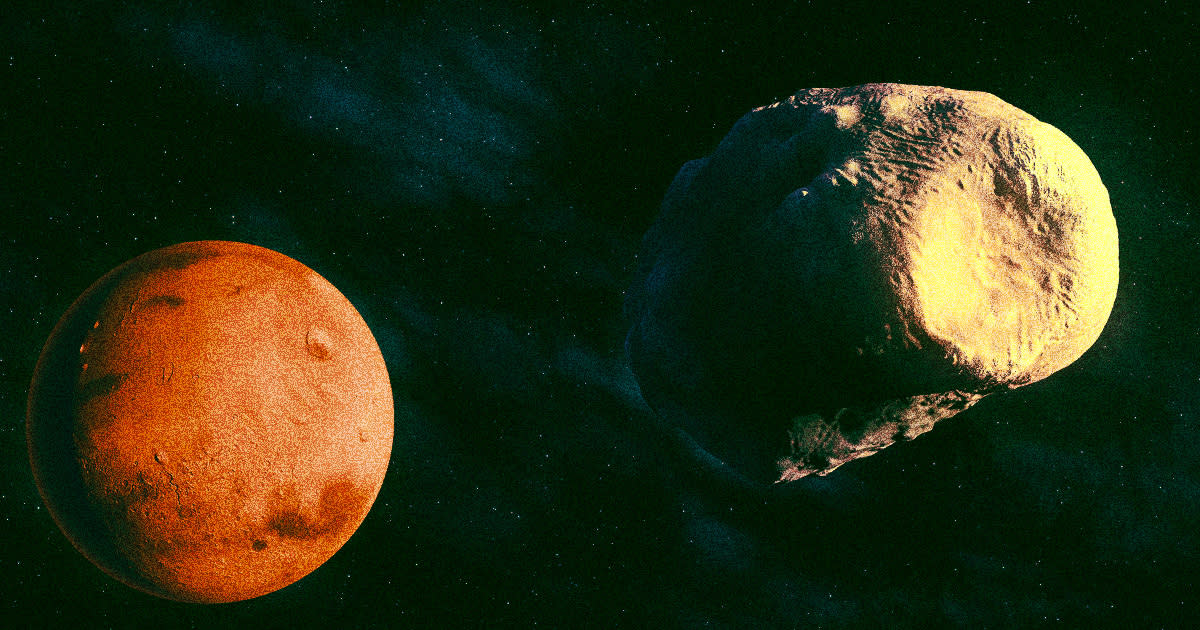Mars' Moon May Not Be What We Think, Scientists Claim

Phobos Anomaly
The conventional wisdom about Mars' small and misshapen moons, Phobos and Deimos, is that they were either created like Earth's Moon — carved out of the planet by an impact with a huge object — or that they were passing asteroids that Mars' gravitational field captured, or perhaps remnants from an earlier and larger moon that broke apart.
But a team of scientists from France and Germany have now proposed that Phobos may have been formed from a comet — and that means Deimos could be from the same celestial body, too.
In their study, a preprint for the journal Astronomy and Astrophysics, the scientists stake their claim on images of Phobos taken between 2004 and 2022 by the Mars Express spacecraft, a joint mission by NASA, the European Space Agency and the Italian Space Agency.
By analyzing details and data from the images, which Live Science lays out in an excellent explainer, the scientists discovered that Phobos has certain properties regarding how it reflects sunlight and its porous sand-like surface that are similar to comets whose orbits are heavily influenced by Jupiter.
From these observations, the scientists suggest that Phobos is actually a comet that Mars' gravitational field captured in the distance past. That could also mean, the scientists reason, that Phobos and Deimos both came from the same comet that was subsequently torn apart.
Moon Detective
In order to find out more about the origins of these moons, Japan is planning on launching sometime this decade the Martian Moons eXploration (MMX) mission, a spacecraft dedicated to studying the two lumpy Martian moons.
First, it will orbit Phobos and perform observational studies of that moon before moving onto Deimos and Mars. Then it will attempt to land on the surface of Phobos and collect samples of the moon for a return trip back to Earth.
Studying these samples will hopefully uncover a rich trove of information such as chemical composition — but perhaps most tantalizingly of all, provide an answer to the mysterious origins of Phobos and Deimos.
More on Mars: Probe Detects "Unknown Features" Inside Martian Moon Phobos

